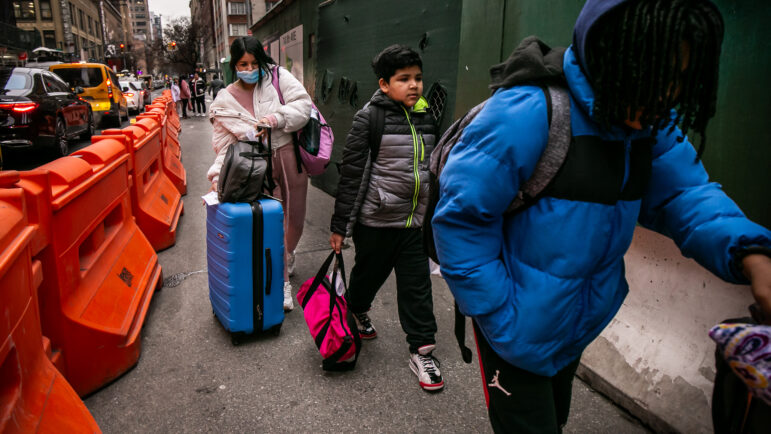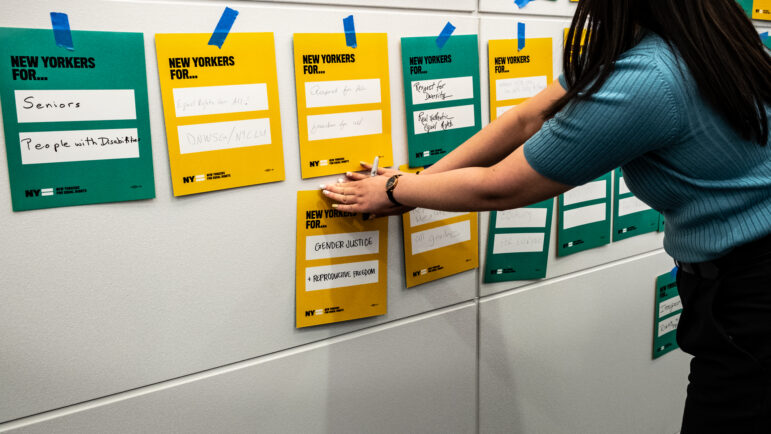Two months after the New York Yankees officially announced plans to build a new, modernized stadium adjacent to the current site, environmental advocates and neighborhood residents are beginning to mobilize against it. Many say the creation of a new stadium will burden a community already hit hard by traffic, unemployment and health problems.
While some residents are simply calling for more transparency and inclusion in the planning process, or the promise of certain concessions, others would like to see the new stadium plans abandoned entirely.
Some Bronx residents and government watchdog groups fear that the planned construction, slated to start in May 2006, will be a waste of public funding. The renovation of the area surrounding the new stadium, creation of extra parking spaces, improvements on local infrastructure, and recreation of lost parkland are estimated to cost the state $70 million and the city upwards of $135 million.
Community members also fear the impact of years of construction. “We aren’t talking about stopping the project, but we are saying that the community should have been informed,” said Gilberto Rivera, a member of the housing and community development group Nos Quedamos. “It’s going to affect our parks, our streets, our businesses, but we haven’t really been included in any of the planning so far.”
Bronx Voices For Inclusion, a new subcommittee of the Mid-Bronx Neighborhood Advisory Council–comprised of residents, business-owners, and local organizations–is planning to publicly voice its concerns about the stadium later this month. The group is also fighting the destruction of the nearby Bronx Terminal Market and creation of a shopping complex in its place.
Members of Bronx Voices say they want the Yankees to sign a community benefits agreement, similar to the one signed for the Nets Stadium. “There are 800 jobs developed within Yankee Stadium and in 2,500 jobs in Bronx Terminal Market Gateway project. The community should have access in terms of what the jobs are and how to apply,” said neighborhood resident Gregory Bell.
Environmentalists have also criticized the addition of over 5,000 parking spaces for a stadium with 1,500 fewer seats, saying this will be a source of extra traffic, congestion, and asthma. “The city is courting development but undermining itself by not making the area more transit-friendly,” said Teresa Toro, New York City coordinator of Tristate Transportation Campaign, a regional transportation policy watchdog group. “By building a smaller stadium, but adding parking, the city is inviting more Yankee fans to drive.” Toro supports the addition of a Metro North stop or other means of increased mass transit to the stadium in lieu of added parking garages.
While Bronx Voices is working to revise the current plan, other residents simply want to block it. David Gratt, a Bronx resident, baseball fan, and president of Friends of Yankee Stadium, thinks the team should remodel the existing space instead. “This is a poorly designed replica of a historic site,” he said. “The current stadium should be renovated rather than torn down. The city shouldn’t be spending money on it. It isn’t a public good, it’s a private one.” He expressed frustration at the state representatives who supported the stadium bill, which passed through the State Senate and Assembly in late June, only a week after the plans were made public to the city.
Though she voted to allow the parkland to become grounds for the stadium, Bronx Assemblywoman Aurelia Green said it wasn’t a free pass. “I believe it is our civic responsibility to make sure that the development provides employment opportunities and training for Bronx residents,” said Green.
Yankee president Randy Levine said he was confident he could meet the needs of the community, but avoided responding directly to any of their concerns, though he said there would eventually be some kind of community benefits agreement.
“It is too early in the process to consider it now,” said Levine. “There is an environmental process that is ongoing. I am not going to discuss it right now, but it is ongoing.”








